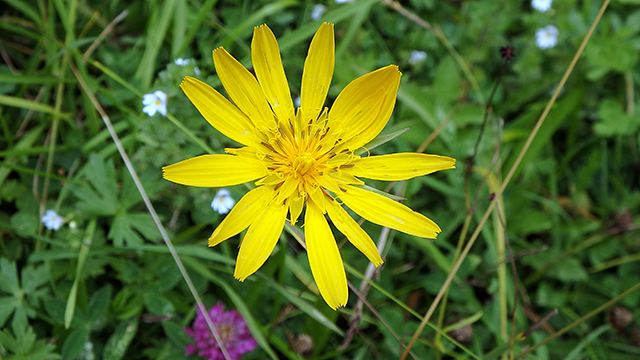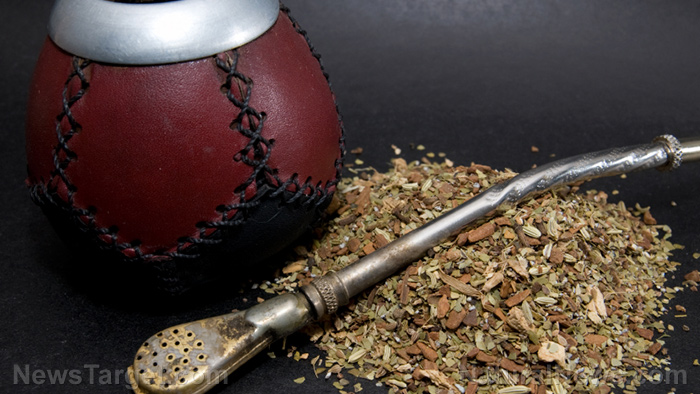Study: Obese people who supplement with Thai black ginger are less likely to develop a skin disorder
11/24/2018 / By Ralph Flores

Obesity is a disease that brings a laundry list of complications. However, taking a little-known member of the ginger family can prevent skin disorders from being part of that list, according to a study in the Journal of Natural Medicines. In their study, researchers from Japan have concluded that Thai black ginger (Kaempferia parviflora) is effective against obesity-induced skin damage, based on animal studies on dermatopathy.
Obesity refers to a condition where a person has an excessive amount of body fat. In particular, people with a body mass index (BMI) of 30 and above are considered to be obese. There are a lot of factors that can cause obesity, including conditions such as Cushing’s syndrome and Prader-Willi syndrome; however, most cases of obesity come from an imbalance between a person’s energy intake and his physical activity. Once this happens, the body stores that excess calories as fat.
There are a number of serious health problems that come with obesity, including cardiovascular diseases and metabolic syndrome. In the study, researchers looked at skin disorders, given that the skin is also affected by the condition. When a person is obese, the fat cells in his skin become enlarged, stretching it and reducing the stability of fibers that hold the skin.
The researchers used obese mice for this study. To mimic the effects of skin damage, the mice were irradiated with ultraviolet B (UVB) radiation. Before the mice were exposed, they received either an extract from Thai black ginger or a placebo. The findings revealed that mice treated with Thai black ginger had exhibited significant decreases in body weight and subcutaneous fat. In addition, they also found that the collagen fibers in their skin had better structure after treatment.
Mother Nature's micronutrient secret: Organic Broccoli Sprout Capsules now available, delivering 280mg of high-density nutrition, including the extraordinary "sulforaphane" and "glucosinolate" nutrients found only in cruciferous healing foods. Every lot laboratory tested. See availability here.
Researchers concluded that Thai black ginger can reduce the likelihood of obesity-related skin damage. They also added that further studies on the plant are needed, especially those that plan to use Thai black ginger for supplements to treat skin disorders caused by obesity. (Related: Ginger reduces chronic inflammation, pain and migraines, helps digestion, diabetes and more.)
Getting the most out of Thai black ginger
People have long used Thai black ginger as a natural testosterone booster. In Thailand, where it’s called krachai dum, the spice is used to increase energy and treat multiple gastrointestinal problems. Here are some benefits that you can get from using Thai black ginger.
- It controls psoriasis. Studies have shown that using Thai black ginger can prevent psoriasis flare-ups. In the study, researchers identify a naturally occurring molecule called methoxyluteolin that inhibits the release of certain inflammatory responses.
- It improves sexual performance. A study in the Journal of Integrative Medicine has indicated that Thai black ginger can improve both sexual satisfaction and performance. The results are comparable with that of medications like Viagra — but without the negative side effects.
- It reduces inflammation. A molecule in Thai black ginger called luteolin has anti-inflammatory properties, a common trait in most skin disorders.
- It has anti-aging properties. Experimental studies have found that Thai black ginger can activate the longevity gene, which can slow down age-related developments in the skin.
- It’s great for diabetics. Thai black ginger has been found to reduce blood sugar levels, which is highly beneficial for those suffering from Type 2 diabetes. Studies on its ability to block fat buildup and reduce insulin resistance have also been promising.
Learn about the other uses and health benefits of Thai black ginger at Food.news.
Sources include:
Tagged Under: dermatopathy, fat cells, food as medicine, food cures, ginger, Herbs, Kaempferia parviflora, natural cures, natural remedies, obesity, obesity disorders, remedies, skin disorders, skin health, slender, supplements, Thai black ginger



















